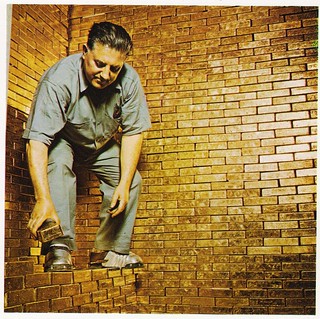
THE HISTORY OF DIGITAL CURRENCIES
Here's a new article on the history of digital currencies.
The author is Finn Brunton, a professor at the University of California, Davis, and author of the 2019 book Digital Cash.
-Editor
 The history of digital cash consists of scientific discoveries from the 1970s, hardware from the 1980s, and networks from the 1990s, shaped by theories from the previous three centuries and beliefs about the next ten thousand years. It speaks ancient ideas with a modern twang, as we might when we say
The history of digital cash consists of scientific discoveries from the 1970s, hardware from the 1980s, and networks from the 1990s, shaped by theories from the previous three centuries and beliefs about the next ten thousand years. It speaks ancient ideas with a modern twang, as we might when we say quid pro quo or shibboleth : the sovereign right to issue money, the debasement of coinage, the symbolic stamp that transfers the rights to value from me to thee. Digital cash has the hovering, unsettled realness (not reality) of all money, a matter of life and death that is also symbolic tokens, rules of a game, scraps of cotton blend and polymer, entries in a database, promises made and broken, gestures of affection and trust. The long history we are discussing here is at its heart the history of a debate about knowledge, an epistemological argument conducted through technologies.
It is a debate broadly familiar to anyone who has taken an interest in the nature of money, or even looked idly at a banknote for a bit: how do I know that money is real? I want to phrase the question in this somewhat awkward way to capture how it can be reasonably answered. We can ask it at the level of a particular token of money—how do I know this money is real?—with the feel and texture of a note, the security threads, watermarks, and ultraviolet inks. We can ask it at the level of some type or variety of money, perhaps expressed as a preference for one currency as more solid than another, for instance, or for cash over credit, or gold over both: how do I know this kind of money is real? Finally, we can ask it at the level of money as such—what is money that it has value for us, and how do we know that value? How do I know that money is real?
I'm sure the reader has already noticed that this set of questions is fundamentally confused: real sometimes means valuable, sometimes reliable, genuine, or authentic. They muddle different kinds of knowledge together, from the empiricism of handling cash, to the accumulated experience of shared social norms about money, to beliefs and bets about the future based on all manner of conviction, habit, and hope. They conflate fundamentally unlike things into the category of money. I hope this very confusion is useful in showing us the kinds of realness that co-exist in even ordinary cash experience—holding a US twenty-dollar bill, for instance, with its ostensible realness scaling up from your fingertips all the way to the stable monetary sovereignty of the nation, however distant it may be. I want us to dwell on this, because attempts to resolve these uncertainties (what do you mean by money, by real money, by valuable money?) constitute the long history of digital cash. How do I know that a digital object is unique—that it is genuine and not a copy? How do I know that it is worth something? How do I know that any of this is real (and real in what sense)?
The article is more about the philosophy of money itself than the technology, but it does touch on
DigiCash,
"b-money",
Bernard von NotHaus's Liberty Dollar, and
Bitcoin exchange Mt. Gox.
-Editor
To read the complete article, see:
TRADING IN ATOMS FOR BITS
(https://www.cabinetmagazine.org/kiosk/brunton_finn_11_february_2021.php)
To read the earlier E-Sylum article, see:
NEW BOOK: DIGITAL CASH
(https://www.coinbooks.org/v22/esylum_v22n25a04.html)
THE BOOK BAZARRE
RENAISSANCE OF AMERICAN COINAGE: Wizard Coin Supply is the official distributor for Roger Burdette's three volume
series that won NLG Book of the Year awards for 2006, 2007 and 2008. Contact us for dealer or distributor pricing at www.WizardCoinSupply.com.
Wayne Homren, Editor
The Numismatic Bibliomania Society is a non-profit organization
promoting numismatic literature. See our web site at coinbooks.org.
To submit items for publication in The E-Sylum, write to the Editor
at this address: whomren@gmail.com
To subscribe go to: https://my.binhost.com/lists/listinfo/esylum
Copyright © 1998 - 2024 The Numismatic Bibliomania Society (NBS)
All Rights Reserved.
NBS Home Page
Contact the NBS webmaster
|

